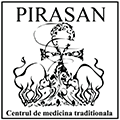Pulmonary cancer – Lung cancer
From all major types of cancer lung cancer is the most frequent one and it has the biggest mortality rate, mostly because is very aggressive and invasive. In men lung cancer is the first cause of death and in women the second one, after breast cancer. In some countries, lung cancer has become the first…
